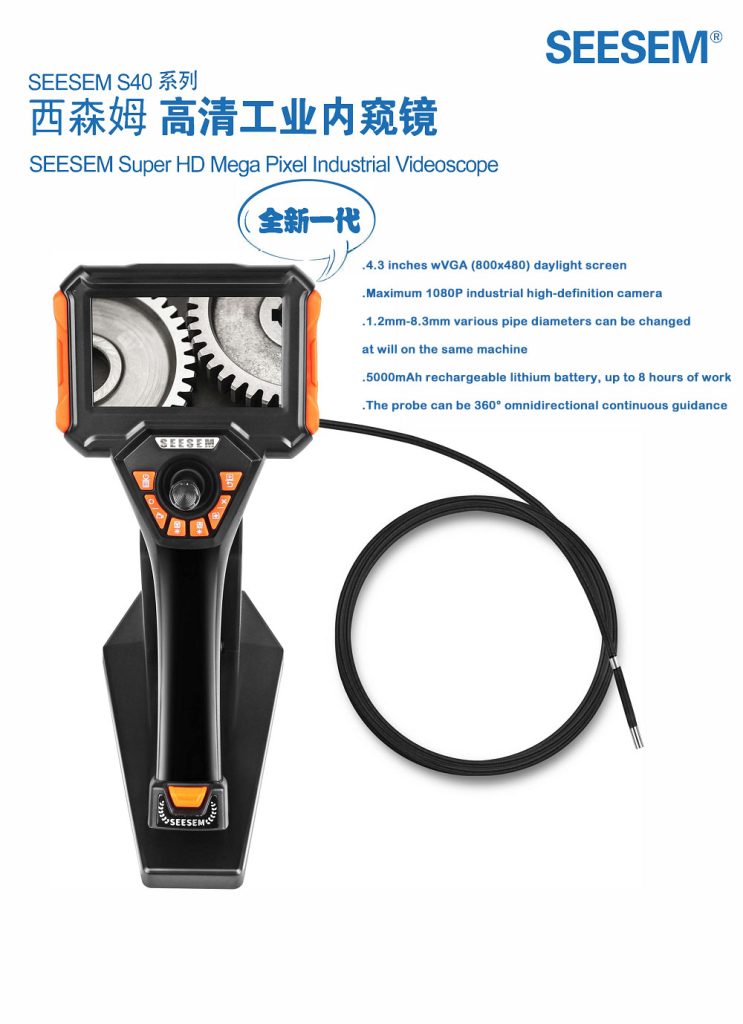Analyzing the Significant Price Disparity in Industrial Videoscopes
導入: 工業用ビデオスコープs have become invaluable tools for professionals in various fields, including engineering, manufacturing, 航空宇宙, and automotive industries. These sophisticated devices enable non-destructive testing and inspection of hard-to-reach areas, ensuring safety, quality control, and efficiency. However, a striking observation in the market is the considerable price disparity among different industrial videoscope models. This article aims to explore the factors contributing to this significant price difference.
- Technological Advancements: One of the primary reasons for the varying price points is the level of technological advancements incorporated into the videoscopes. High-end models feature cutting-edge camera sensors, improved optics, and advanced illumination systems, providing superior image quality and enhanced capabilities for various inspection tasks. On the other hand, lower-priced videoscopes might use older technology with reduced performance and functionality.
- Image Resolution and Clarity: The resolution and clarity of the images and videos captured by the videoscopes significantly impact their price. Industrial videoscopes with higher resolution sensors and better image processing capabilities come at a premium, as they offer clearer visuals, making it easier for inspectors to detect defects and anomalies accurately.
- Probe Diameter and Length: The physical specifications of the probe, including its diameter and length, also contribute to price variations. Videoscopes with thinner and longer probes are generally more expensive due to the engineering challenges involved in maintaining image quality and flexibility in extended configurations.
- Durability and Build Quality: Ruggedness and build quality are critical factors in industrial environments where videoscopes are subjected to harsh conditions. High-quality materials and robust construction add to the overall cost but ensure reliability and longevity, reducing the need for frequent repairs or replacements.
- Articulation and Manipulation: Advanced industrial videoscopes often feature articulating probes that allow users to control the direction of the camera head, providing greater flexibility during inspections. The complexity and precision required in the articulation mechanism contribute to the higher cost of such models.
- Software Capabilities: The accompanying software plays a crucial role in industrial videoscopes, as it affects the user experience and data analysis capabilities. Sophisticated software with advanced measurement tools and seamless integration with other systems can drive up the price of the videoscope.
- Brand Reputation and Support: Established brands with a proven track record of producing reliable and high-performance videoscopes often command higher prices due to their reputation and comprehensive customer support services.
- Certification and Compliance: Certain industries, such as aerospace and medical, require videoscopes to meet specific certifications and standards. Compliance with these requirements can impact the cost of the device.
結論: The significant price disparity in industrial videoscopes can be attributed to a combination of factors, including technological advancements, image resolution, probe specifications, build quality, manipulation capabilities, software features, brand reputation, and compliance with industry standards. Understanding these factors is crucial for professionals to make informed decisions when choosing the most suitable videoscope for their specific inspection needs while ensuring optimal performance and value for money.


